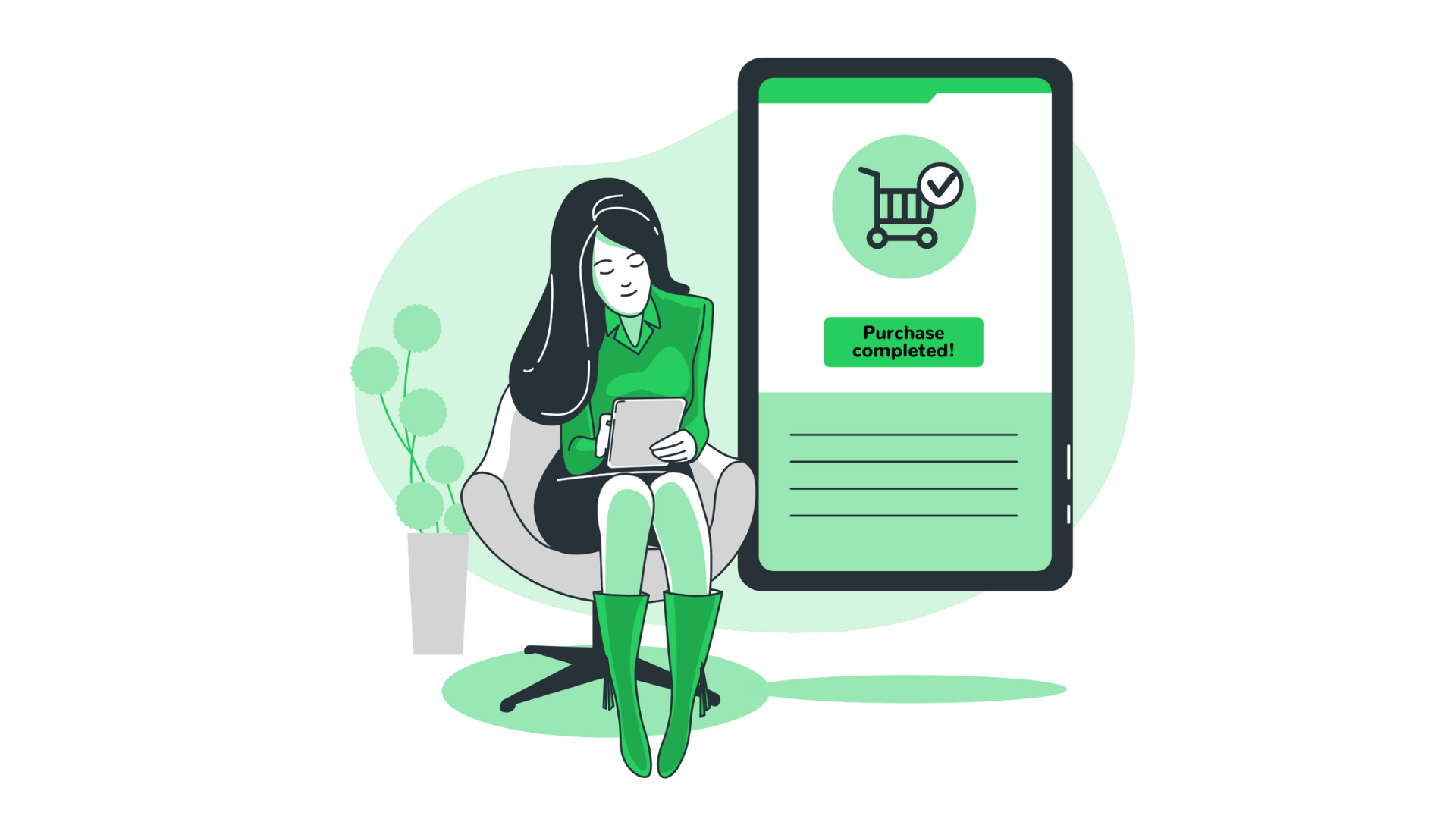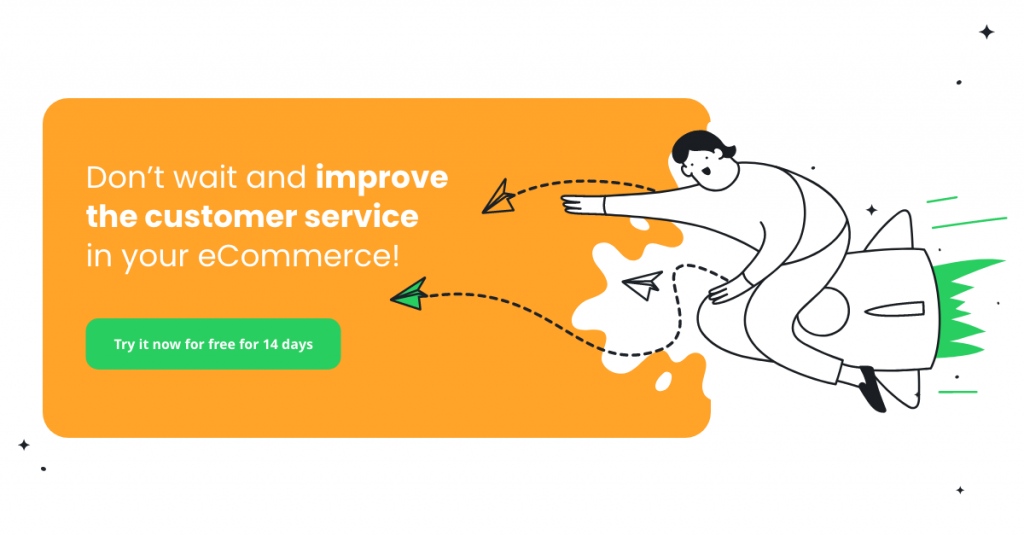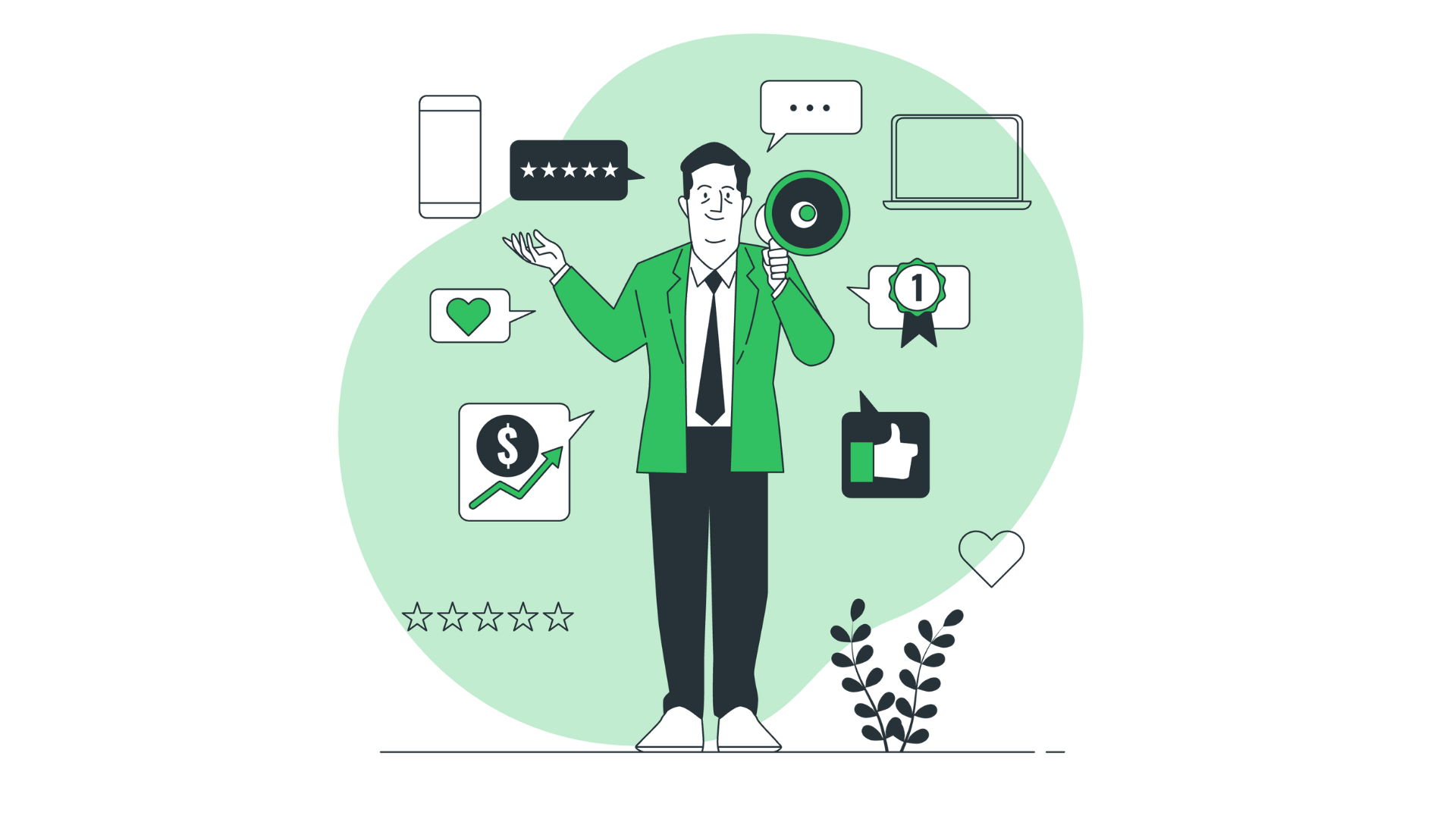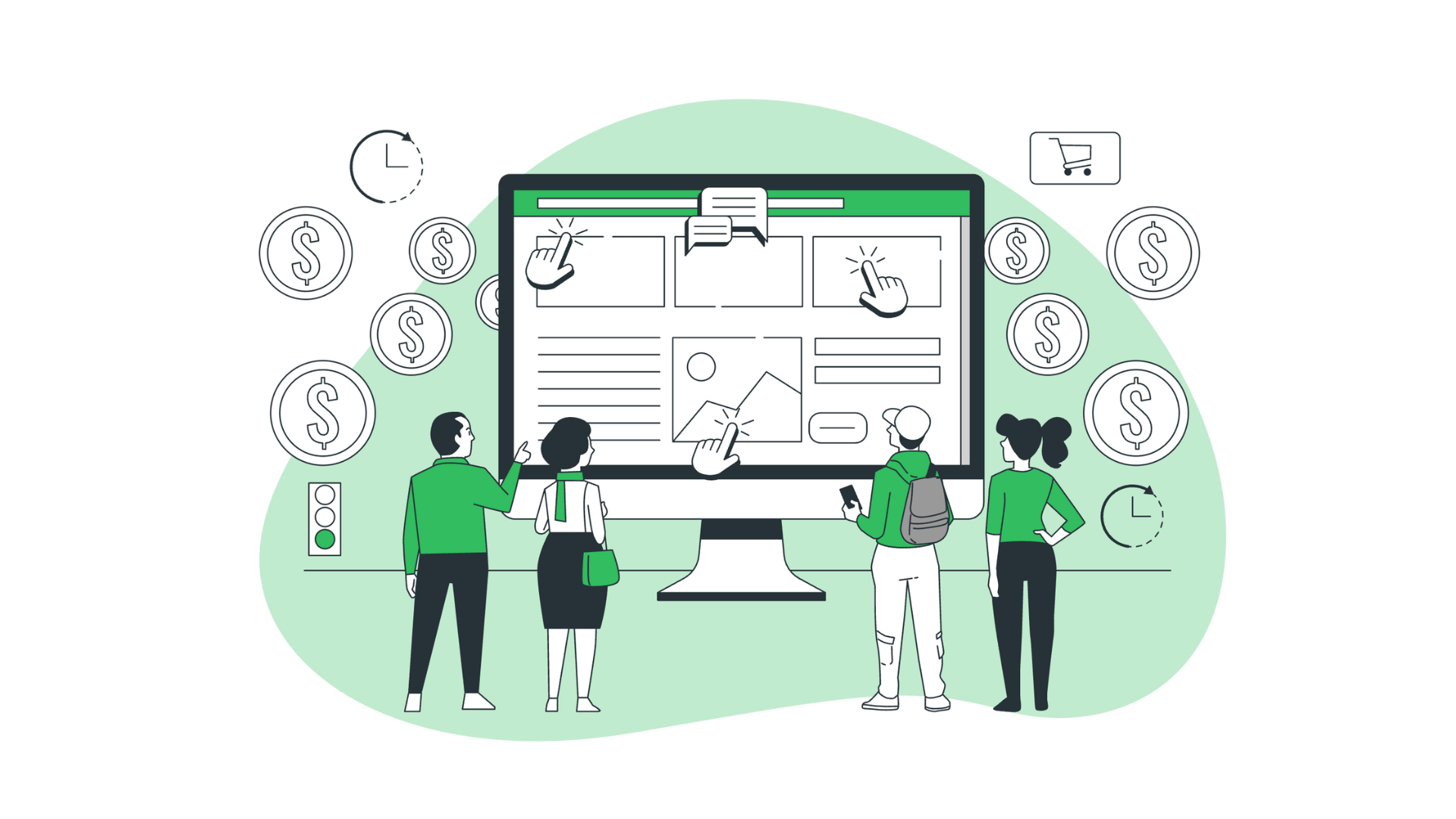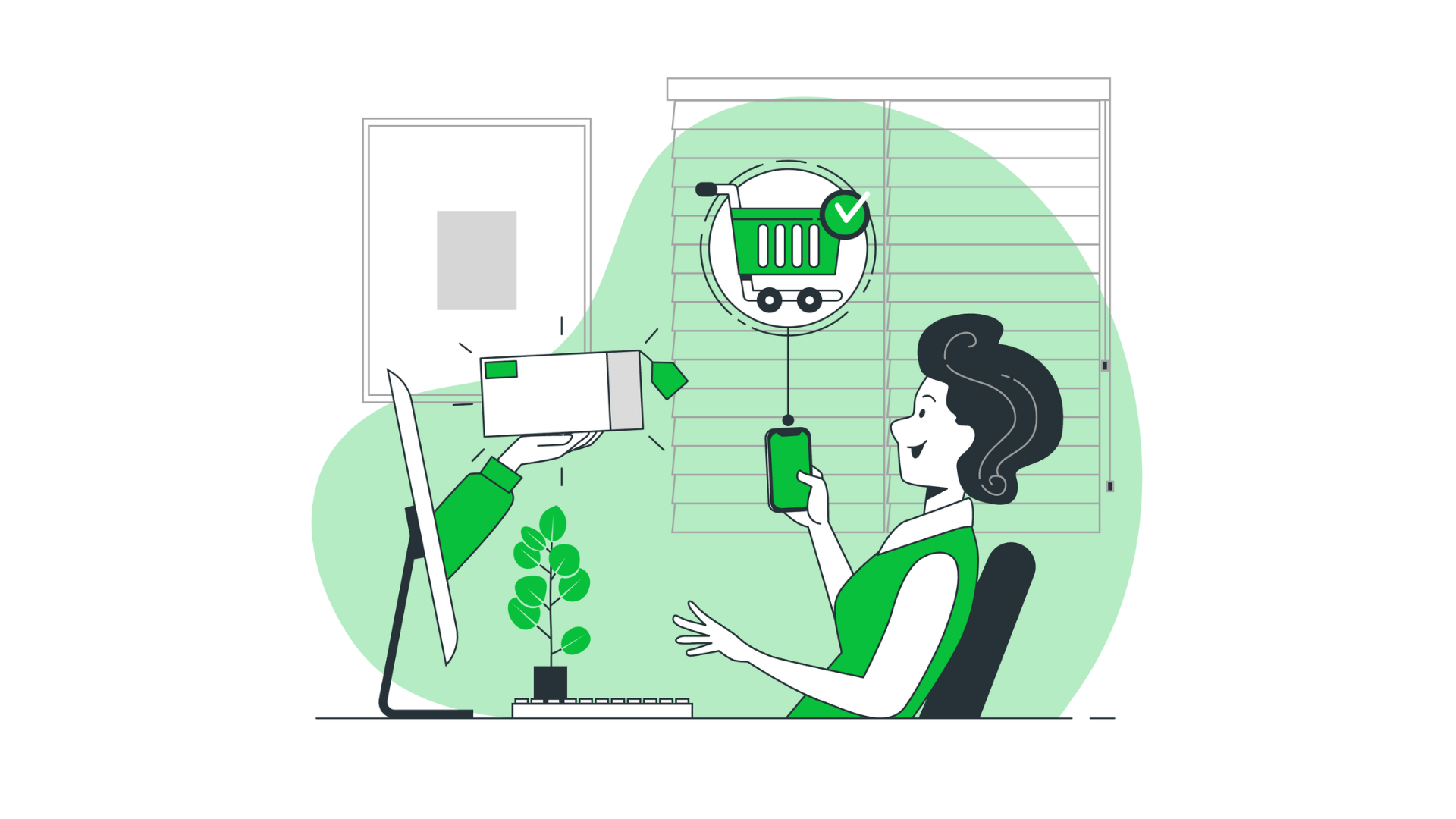Did you know that SaaS clients are all customers, but not all SaaS customers are clients? 🤯 What’s Client vs Customer, actually? It’s kind of confusing, isn’t it?
For some people, the words customer and client might mean the same, but they are not. There’s a difference between the two terms, and you cannot use them interchangeably.
Today, we will explain what’s the difference and provide a better understanding of who is a client and who is a customer.
Without further ado, let’s jump straight into details about client vs customer.
Who is a client?
A client is someone who buys professional services, personalized solutions, or advice from a business. Their purchases are based on a company’s trust, experience, and relationship. As a result, clients get a unique service that nobody gets because it’s specifically tailored for their needs.
A law firm has clients, and so do accountants, financial advisors, and interior decorators.
Who is a customer?
A customer is someone who buys goods from a shop or business or pays for services from a company. In general, someone who does regular shopping. When a service is not specifically adapted to your needs, you’re a customer.
The term customer stems from the word custom, meaning habit, tradition, and practice.
Customers are in supermarkets, electronic stores (for example, PC International), bookshops, or clothing stores – they buy goods there. Phone and internet companies are examples of companies that provide services for customers.
Client vs customer: Where’s the line?
In most cases, customers are not clients. Let’s use a simple example to illustrate. You are the customer if you go to a regular bakery and buy bread, rolls, and three bagels. However, if you go to the same bakery and ask them to start baking gluten and sugar-free baking with organic flour because that’s what you want for your healthy coffee shop, then you would be a client.
What companies have customers, and what companies have clients? More examples
Types of companies that have customers:
- banks
- gas stations
- cafes
- grocery stores
- furniture stores
Types of businesses that have clients:
- marketing agency
- insurance providers
- car mechanics
- carpenters
- seamstresses
Client vs customer: The key difference
To give you a bigger picture, here are the main contrasts between clients and customers.
Experience and reliability are important to clients
Clients will pay attention to a company’s expertise and trustworthiness when finding professional and personalized advice. They can feel confident that they are making the right decision by looking at how long the company has been in business and if they have any positive reviews.
Moreover, client based businesses (like the SaaS industry, for example) offer valuable services (e.g., cloud video security like Arcules) by approaching buyers individually and, in this way, gaining reliability.
💡 An excellent way to develop a strong customer relationship is through this approach.
Price and value are important to customers
The other key difference is the price and value. Customers’ main criteria are monetary worth and value during one purchase. For example, when a shopper buys a piece of clothing.
Clients also consider these two aspects. However, they’re seeking more tailored support, not a one time purchase, so the situation is slightly different.
Professional knowledge is important to clients
Professional knowledge is necessary in today’s business world. It allows clients to make informed decisions about their businesses. In addition, a professional can provide guidance and recommendations based on their years of experience and education, which can help clients save money and achieve their goals.
Advice is important to clients
Additionally, providing personal attention as advice is crucial for clients. Firstly, it ensures that clients receive the best possible assistance or service. Secondly, it builds trust between clients and service providers and helps establish closer relationships.
Finally, when clients feel like their provider cares about them as an individual and takes time to listen to their needs, they are more likely to be satisfied with the services they receive.
Customers tend to go quickly, while clients will maintain an ongoing relationship
A customer is someone who comes in, spends money, and leaves. They might come back every once in a while, but for the most part, they don’t have any ongoing relationship with the business.
However, clients are those people who not only continue to do business with you but also are more likely to refer others to you. As a result, they might give you feedback more willingly and be involved in your business decisions.
Alternatives for clients and customer
If not customers or clients, then who? Let’s look at alternatives that will help you to resolve the client vs customer dispute.
- Buyer – someone who does the purchasing
- Consumer – a person that uses or buys the service or good
- Shopper – someone who shops
- Clientele – they can be a customer of a shop or place
- User – a person who uses a product or service
- Purchaser – someone who buys something
- Patron – a regular customer
- Vendee – a person who purchases
- Browser – an online shopper who looks casually through websites to find goods
Customer success manager for even better support?
To enhance customer experience, hiring a customer success manager might be an option. Their role is to understand the product or service profoundly and know how to use it best.
Additionally, successfully developing customer loyalty is the role of a customer manager as well
For instance, thanks to innovative rewards programs. Also, customer success managers should be prepared to build relationships in both customers’ and clients’ businesses and be ready to help. So many benefits here, for example, customer retention, loyal clients, and increased customer satisfaction rates – just to name a few.
If you want to learn more about customer happiness, here is the article on what metrics measure customer satisfaction.
The question is… Do I have clients or customers?
It depends on what products or services you offer to your buyers. For example, if you have a chain of retail stores and sell clothes that are available for everyone, you have customers.
However, tailors have clients because they alter clothes to match a person’s body and preferences. Also, tailors offer their professional service and sell advice.
💡 Whether you have clients or customers, you must provide good customer service. So…
How to provide brilliant customer service to clients and customers?
Both clients and customers need quality service. And they both will have questions, doubts, or need help. So it’s good to implement reliable customer service to your business strategy. No matter what your business model is, whether it’s a SaaS business looking to gain subscribers, a department store, or a digital marketing agency, having tailored support is crucial to building customer loyalty (and clients’ as well).
💡 Consider long-term personalized assistance as a permanent element of your business strategy.
But how to start? 🤔
Support your clients and customers with Responso
Responso is a great way to support all your buyers. It works as a helpdesk – customers can contact you for help with products and services. Having a helpdesk also allows companies to track and resolve customer issues more efficiently.
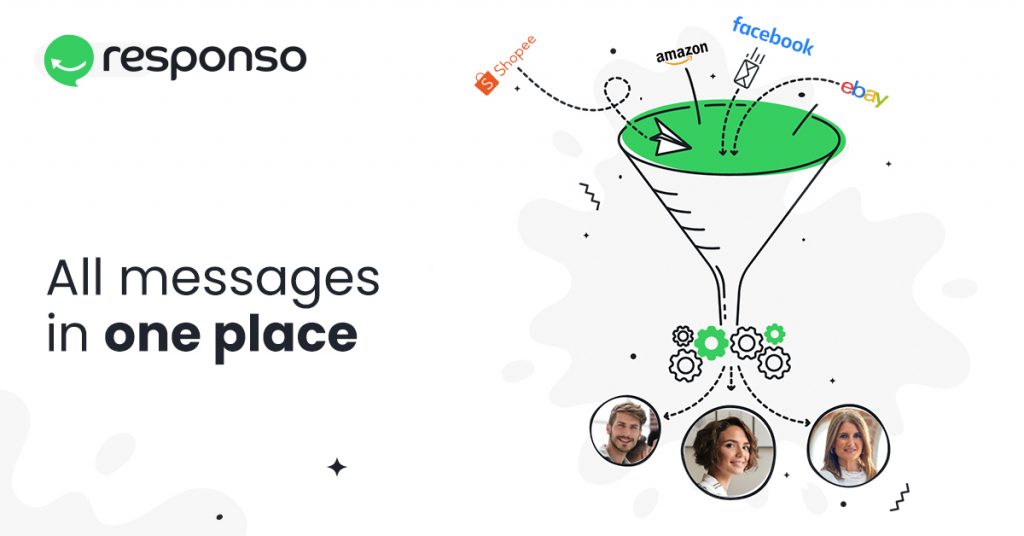
Thanks to many useful features, both client and customer based businesses can help everyone in a blink of an eye.
Responso top features for best customer service customer loyalty
Now, let’s take a look at what Responso has to offer.
01 Unlimited messages for being in constant contact
There’re no limits in terms of the number of messages your customers or clients send you. As a result, you will be able to resolve every issue and answer every question in your inbox as fast as possible.
When customers know they can easily reach out to a company, it makes them more likely to do so when they have an issue or question. It shows that the company cares about its customers and is willing to assist them. Additionally, helping clients or customers right away demonstrates the company’s efficiency and ability to deal with multiple inquiries simultaneously.
02 Integration for improving professional services
Connect to any marketplace you sell on using Responso! You’ll get all the messages across the platforms in one inbox. Facebook Messenger, Shopee, email address, eBay, Amazon, or BaseLinker – no more jumping between the tabs to answer clients’ or customers’ inquiries.
03 Autoresponder for automating some tasks
You can send personalized automatic replies to your store’s customers with Responso. Autoresponder saves you time and ensures that all your customers receive a quick and personal response. With such a feature, your agents have more time to focus on more urgent issues and resolve them immediately.
04 Tags for saving time
With the tags feature, you can categorize messages and organize them. They work like filters so that you can find the content quickly. Moreover, you can use as many tags as you need because Responso does not limit them. In the admin panel, adding tags is easy, thanks to an intuitive interface.
05 Feedback for bettering customer support
Responso allows you to collect feedback from a variety of sources. Also, after each feedback message, you can send an automatic reply with a thank you note. It may seem like a detail, but it is vital to say thank you for their time, no matter if the feedback was positive or negative.
06 Statistics and reports for monitoring performance efficiency
You can get the reports in the admin panel to track the answer time, agents’ efficiency, or ticket distribution. The statistics and analysis will help you to make decisions regarding your agents or service – data provided in the data sheets will allow management to better control response times and quality.
07 Customer details for resolving issues quickly
Access to all the customers’ or clients’ details significantly facilitates your workflow. No more looking for necessary information since it’s all gathered in one place because Responso makes answering all questions regarding casual purchases (and not only!) a breeze.
🚀 Responso solution may help you to get maximum customer retention thanks to quality customer service 🚀
Client vs customer wrapped up
Let’s go back to the question at the beginning. SaaS companies often provide a ready solution that can be bought straight away, making it an immediate exchange – money for a pre-made solution available for everyone. So it is when SaaS customers are not clients.
But, when someone asks such companies for a custom subscription plan tailored to their needs, they’re clients.
Simply put, customers pay money for regular goods and solutions, while clients pay for personalized service or advice.
However, both of them need high-quality customer service! And here is when Responso helps. Thanks to many features, clients and customers can get support and the best customer and client experience. No more thinking client vs customer – all at your fingertips.
Why wait? Join Responso for free!
Client vs Customer FAQ
Which is correct clients or customers?
Both of the versions are correct. However, the meaning is different. It depends on the context you use the terms. For example, when someone buys a personalized, unique service, they are called clients. But if someone buys a product and is not emotionally attached to the brand, then they are called customers.
Client vs customer, what’s the difference?
The main difference between these two words seems to be that clients are those who receive personalized services from someone else. In contrast, customers are those who purchase goods and services daily or occasionally. So, for example, someone who hired a professional, such as a lawyer (trained at, e.g., the NBI), would be a client. But someone who bought something from a store would be a customer.
What are the similarities between clients and customers?
There are many similarities between clients and customers. Both groups are essential to businesses and need to be treated well to maintain customer retention and a positive relationship with the company. Hiring a customer success manager could also work in that matter. Finally, all clients are customers, but not all customers are clients.
Client vs Customer: when to use which?
When you’re a professional or personalized services provider, you use the term client. When you sell goods or services available for everybody, use the term customer. Of course, there is a client vs customer dispute about which word to use. But, hopefully, the difference is more clear to you.

